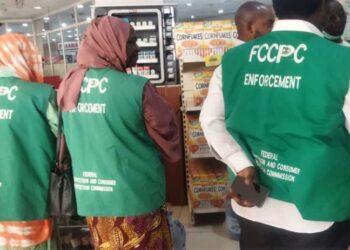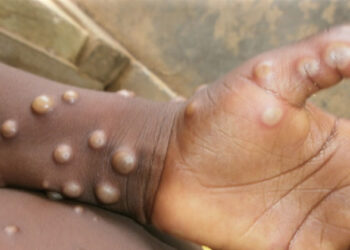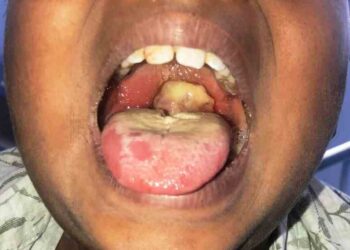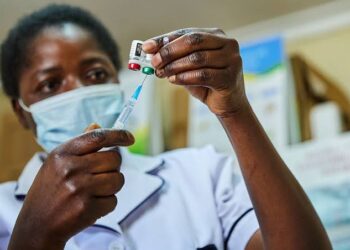The federal government through the Nigeria Centre for Disease Control and Prevention, NCDC, on Monday, activated a national cholera emergency centre, following the outbreak of the disease in the country.
It also said 53 deaths and 1,528 suspected cholera cases were recorded across 31 states and 107 local government areas, with a case fatality rate of 3.5 per cent since the beginning of 2024.
This is even as Lagos State government on Monday disclosed that the cholera death toll had risen to 29 from the previously reported 24 last week, adding that the total number of suspected cases had risen to 579.
Director-General of NCDC, Dr Jide Idris, who spoke in an update on the cholera epidemiological situation in Nigeria, expressed fears that the situation might be compounded as the rainy season intensifies.
As part of ongoing prevention and response efforts at the national and sub-national levels, Idris assured that a National Cholera Emergency Operation Centre has been activated.
“Cholera, a highly contagious food and water-borne disease, has in the recent past reared its devastating head in several states across our country. It is caused by the ingestion of the bacterium, Vibrio cholerae in contaminated water and food.
“As of 24th June 2024, 1,528 suspected cases and 53 deaths have been recorded across 31 states and 107 local government areas with a case fatality rate of 3.5 per cent since the beginning of the year.
“These fatalities are not just statistics but a significant loss of a loved family member, a spouse, a parent, and often a seasoned healthcare worker and team member. This situation may be compounded as the rainy season intensifies,” Idris said.
He expressed regrets that the country is facing another public health emergency as it was just coming out of the Lassa fever and meningitis outbreaks.
In response to the rapidly increasing cholera cases, a dynamic risk assessment was conducted by subject matter experts on cholera outbreak situation in Nigeria last week.”
“The subject matter experts were drawn from relevant ministries (health, environment, agriculture, water resources etc.), departments, agencies, stakeholders, and major partners.
“The outcome of the risk assessment placed the country at ‘high risk’ of cholera transmission and impact. This demands our immediate and coordinated actions and, therefore, necessitated the activation of the National Cholera Multi-Sectoral Emergency Operations Centre, EOC, in Nigeria today.
“The decision to activate the Cholera Emergency Operation Centre underscores the gravity of the situation and our unwavering commitment to protect the health and well-being of every Nigerian,” he said.
Idris described the Emergency Operation Centre as the central hub for coordinating the nationwide response, noting that it would support affected states, speed up communication and data analysis, and help with decision-making.
“Additionally, it will mobilize resources and expertise from the NCDC, our partners, and all levels of government.
“ It will ensure efficient deployment of needed resources, strengthen surveillance and diagnostic capacity and capabilities, enhance case management, training and intensify public awareness and community engagement activities.
“To effectively do this, an Incident Manager has also been appointed, who will coordinate the day-to-day activities involving several pillars such as surveillance (data collection, analysis and dissemination), case management, oral cholera vaccine issues, coordination, infection prevention & control, IPC, logistics support, and research,’’ he said.
In a related development, Lagos State government has disclosed that the total number of cholera cases has increased to 579, with Lagos Island, Kosofe, and Eti Osa Local Government Areas, LGAs, recording the highest numbers.
The death toll has also risen to 29, an increase of five from the previously reported 24 fatalities.
Lagos State Commissioner for Health, Prof. Akin Abayomi, who disclosed this at the Lagos State multi-agency briefing and update on the cholera outbreak yesterday, said the state’s surveillance was yet to tie the outbreak to a specific cause, although efforts were ongoing to unravel the sources of samples tested.
“So far, we have not been able to identify a source yet, but investigations are ongoing. Moving forward, we are going to keep active surveillance around our water sources and beverages in Lagos State,” he stated.
Abayomi further revealed that 30 patients were currently being hospitalised for varying degrees of the disease at the Infectious Disease Hospital, IDH, Yaba, adding that about 579 suspected cases had been identified, 43 of whom were confirmed through laboratory analysis.
He explained: “Most of these deaths were caused by patients presenting very late at a stage where we could not resuscitate them because they had severe rehydration and many patients were actually brought in dead.
‘’Out of all the samples we were able to collect, we were able to identify Vibrio cholera. So this is indeed a confirmed case of a cholera outbreak by a subtype O1 that is known to us to be very contagious and to cause significant sickness in those that contract it.’’
Speaking on cholera vaccine, the commissioner said the government had not included oral cholera vaccine in the routine national immunization programme.
While acknowledging the effectiveness of the oral vaccine, the commissioner highlighted several factors for the decision.
He said: “Firstly, introducing a new vaccine requires careful consideration, especially in the current climate of vaccine sensitivity. Secondly, the low incidence of cholera cases in the country doesn’t justify a nationwide rollout.”
Abayomi emphasised that the situation would be different if cholera cases surged, adding that in such a scenario, immediate action would be taken, including importing vaccines.
He added that currently, a limited supply of the oral cholera vaccine was available in the private sector but not through public health facilities.
Prof. Abayomi said the discussions should be at the federal level to determine whether to integrate this vaccine into the national immunisation programme.
On efforts to halt the spread of the disease, the commissioner said the state government was in complete control, even as he disclosed that it was offering cholera treatment free of charge to any suspected cases.
He, therefore, urged patients who are having symptoms of cholera to rush to any public hospitals for treatment.
“The state government has also adopted one health approach to response as relevant ministries and agencies and departments of the Lagos State government, including health, environmental and water resources, education, information and strategy, physical planning and agriculture are working together to curb the outbreak, prevent future occurrence.
“Directorate of Environmental Health and Lagos State Environmental Protection Agency are collecting samples of water, food, and beverages to determine the source of the outbreak; ongoing inspections of facilities in affected areas; prepositioning cholera kits in health facilities statewide; distribution of Oral Rehydration Solutions (ORS) and risk Communication and Public health education campaigns commenced and intensified,” he stated.
The commissioner, however, urged residents to consume safe water, practice good personal hygiene such as hand washing, especially after using the toilet and before eating; washing of raw fruits and vegetables; cook food properly; thoroughly reheat leftover food before consuming; avoid unregulated and unregistered Street beverages and ensure general environmental sanitation.
To prevent similar outbreaks, he said the state government would introduce an initiative, called safe plate and Safe Beverage to prevent the recurrence of outbreaks such as cholera.
The initiative, according to him, will ensure that all street food vendors and beverage sellers will be monitored to and given a modus operandi of operation.
In his remarks, General Manager, of Lagos State Environmental Protection Agency, LASEPA, Dr Tunde Ajayi, said open defecation was primarily a behavioural problem which had no link with the cost of rents in Lagos.
“As a matter of fact most of the places where you have publicly visible open defecation also have public toilets around them. There’s virtually no commercial facility or business particularly for instance, that doesn’t have the publicly accessible toilets that people can use.
‘’So I think one easy way that we are backing on to tackle it is community-led behavioral change and sensitization.
“So you need to continuously tell people, you need to continuously educate them and you need to use proper toilets and these things usually don’t have to be very expensive. A proper toilet, it doesn’t have to be waterproof, with a good bowl on it. You know what I mean by the bowl? A good bowl on it and the people are trained,’’ he said.











